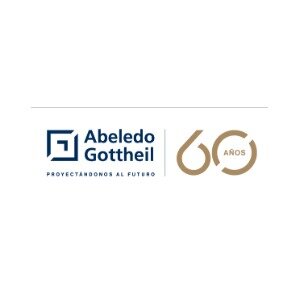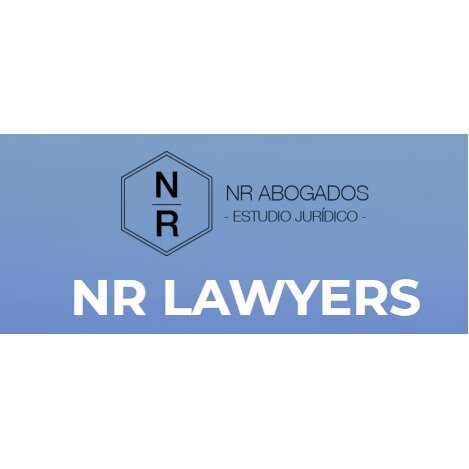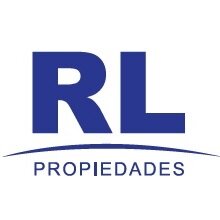Best Private Equity Lawyers in Argentina
Share your needs with us, get contacted by law firms.
Free. Takes 2 min.
Or refine your search by selecting a city:
List of the best lawyers in Argentina
About Private Equity Law in Argentina
Private Equity (PE) in Argentina refers to investments in private companies or buyouts of public companies that result in a delisting from stock exchanges. The objective is to generate value by investing capital and expertise into businesses to strengthen operations, expand market reach, or drive innovation. While Argentina has experienced periods of economic volatility, its diverse industries and talent pool offer attractive opportunities for investors. The legal framework for private equity investments in Argentina involves several regulatory bodies and laws to protect both investors and businesses.
Why You May Need a Lawyer
Involving a lawyer is essential in the private equity sector due to the complex nature of investments and local regulations. Common situations where legal assistance is valuable include:
- Drafting and negotiating investment agreements and shareholder structures
- Conducting legal due diligence on target companies
- Assessing regulatory compliance and foreign investment controls
- Navigating tax structuring and fiscal incentives
- Assisting with regulatory filings and approvals
- Managing disputes between investors, partners, or management teams
- Implementing exit strategies like sales, IPOs, or restructurings
An experienced private equity lawyer can help protect your interests, decrease risks, and facilitate smoother transactions.
Local Laws Overview
Private equity transactions in Argentina are subject to a range of local regulations. Key aspects include:
- Regulatory Authorities: The Comisión Nacional de Valores (CNV) oversees public offerings and certain private placements. The Central Bank regulates foreign exchange, including capital inflows and outflows.
- Investment Vehicles: Common structures include Sociedad Anónima (corporation), Sociedad de Responsabilidad Limitada (limited liability company), and trusts. Each has different implications for liability, tax, and governance.
- Foreign Investment: While generally permitted, certain sectors are restricted or require prior approval. Exchange controls may impact profit repatriation.
- Taxation: Investors may be liable for capital gains, dividend withholding taxes, and VAT. There are special tax regimes (like the Promotional Regime for the Knowledge Economy) that may offer benefits.
- Labor Laws: Argentina has robust labor protections that can affect investments, especially when restructuring or acquiring companies with significant staff.
- Competition Law: Significant transactions require notification to and approval from the local antitrust authority to avoid anti-competitive effects.
- Anti-Money Laundering: Strict reporting and compliance requirements guard against financial crimes.
Frequently Asked Questions
What is the process of making a private equity investment in Argentina?
The process typically involves identifying target companies, conducting due diligence, negotiating investment terms, drafting agreements, obtaining necessary regulatory approvals, and finalizing the transaction.
Are there restrictions on foreign investors in Argentina?
Most sectors are open to foreign investors, but certain industries like media, defense, or real estate near borders may have restrictions or require prior governmental approval.
Which legal structures are most common for private equity investments?
Sociedad Anónima (S.A.), Sociedad de Responsabilidad Limitada (S.R.L.), and Fideicomisos (trusts) are frequently used, depending on investment size, risk appetite, and investor preferences.
What are the main legal risks for investors?
Risks include regulatory changes, currency fluctuations, litigation, tax liabilities, and challenges in enforcing contracts or repatriating funds.
How is due diligence conducted?
Due diligence involves reviewing a target company’s legal, financial, tax, and compliance standing, including contracts, intellectual property, licenses, labor obligations, and legal proceedings.
What are the typical exit strategies in Argentine private equity?
Common exit strategies include trade sales, initial public offerings, or secondary buyouts. The chosen method depends on market conditions and investor goals.
How does currency control affect private equity?
Argentina has periodically implemented currency controls that may impact capital inflows and outflows. Proper structuring and planning are crucial to minimize the impact on profit repatriation.
Are there specific tax implications for foreign investors?
Yes, dividend distributions, capital gains, and interest payments may be subject to withholding taxes. Specific treaties and exemptions may apply, so professional tax advice is recommended.
What antitrust approvals are needed for private equity deals?
Mergers and acquisitions above certain thresholds must be reported to the national antitrust authority, which will assess and approve the transaction for compliance with competition laws.
Is local legal due diligence necessary for every investment?
Yes, local due diligence is critical to uncover potential legal, tax, or regulatory issues and to structure the deal effectively under Argentine law.
Additional Resources
If you are seeking more information on private equity in Argentina, consider consulting the following resources:
- Comisión Nacional de Valores (CNV) - Argentina’s securities regulator
- Argentina’s Ministry of Economy
- Central Bank of Argentina (BCRA) for currency control regulations
- Autoridad Nacional de la Competencia - antitrust authority
- Argentine Association of Private Equity, Venture and Seed Capital (ARCAP)
- Legal and tax advisory firms specializing in private equity
Next Steps
If you need legal assistance with private equity matters in Argentina:
- Identify your specific needs, such as investment structuring, due diligence, or dispute resolution.
- Gather all relevant documents and information about your investment interests or target companies.
- Contact a reputable law firm or legal advisor specializing in private equity in Argentina.
- Request an initial consultation to assess your case and receive tailored legal advice.
- Ensure that your legal representative is familiar with local laws and has experience with international transactions if you are a foreign investor.
Taking these steps will help you navigate the Argentine legal landscape and protect your interests throughout your private equity investment journey.
Lawzana helps you find the best lawyers and law firms in Argentina through a curated and pre-screened list of qualified legal professionals. Our platform offers rankings and detailed profiles of attorneys and law firms, allowing you to compare based on practice areas, including Private Equity, experience, and client feedback.
Each profile includes a description of the firm's areas of practice, client reviews, team members and partners, year of establishment, spoken languages, office locations, contact information, social media presence, and any published articles or resources. Most firms on our platform speak English and are experienced in both local and international legal matters.
Get a quote from top-rated law firms in Argentina — quickly, securely, and without unnecessary hassle.
Disclaimer:
The information provided on this page is for general informational purposes only and does not constitute legal advice. While we strive to ensure the accuracy and relevance of the content, legal information may change over time, and interpretations of the law can vary. You should always consult with a qualified legal professional for advice specific to your situation.
We disclaim all liability for actions taken or not taken based on the content of this page. If you believe any information is incorrect or outdated, please contact us, and we will review and update it where appropriate.
Browse private equity law firms by city in Argentina
Refine your search by selecting a city.

















